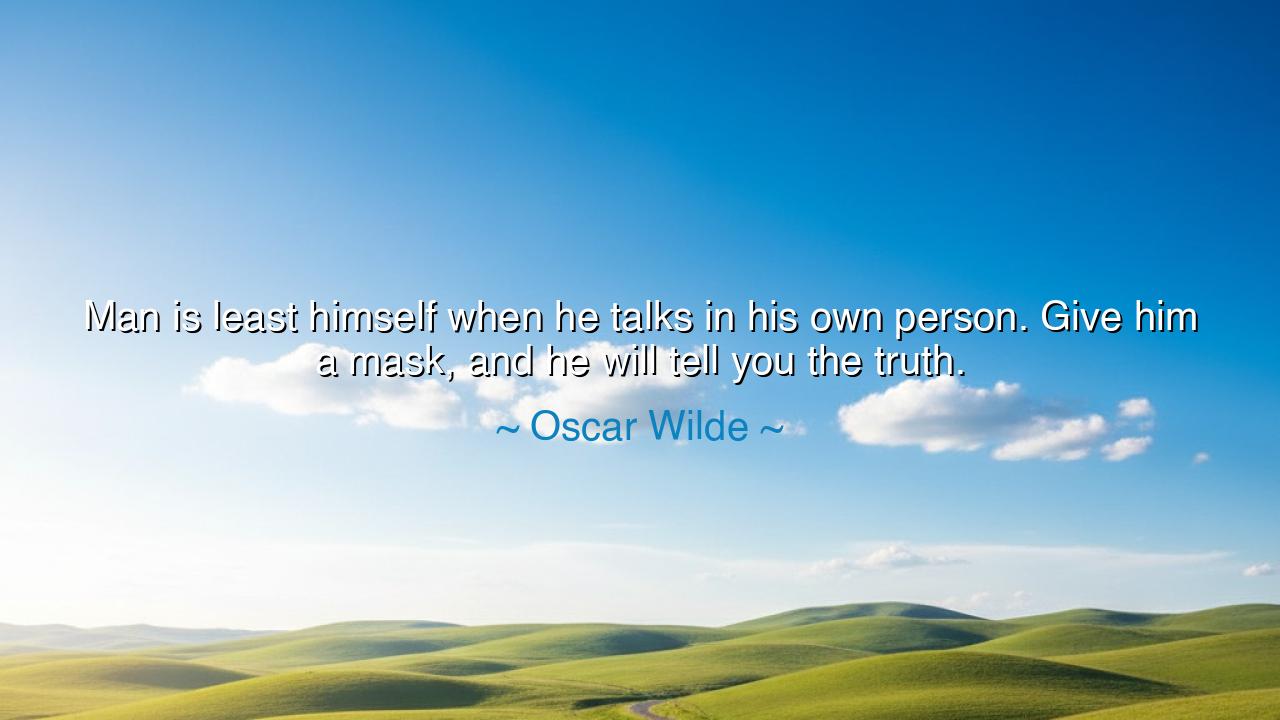
Man is least himself when he talks in his own person. Give him a
Man is least himself when he talks in his own person. Give him a mask, and he will tell you the truth.






Hear the voice of Oscar Wilde, master of paradox and revealer of human masks, who declared: “Man is least himself when he talks in his own person. Give him a mask, and he will tell you the truth.” In this saying lies a piercing observation of human nature—that in our daily lives, clothed in our names and reputations, we conceal ourselves more than we reveal. But when hidden behind disguise, when freed from the burden of judgment, man dares to speak his hidden thoughts. The mask becomes paradoxically the instrument of truth, for it removes the fear of consequence.
The meaning of this teaching is sharp. When a man speaks “in his own person,” he is bound by the chains of expectation—his family’s honor, his society’s laws, his own fear of being despised. He edits his words, disguises his feelings, smooths the rough edges of truth. But give him a mask—anonymity, a role, a disguise—and suddenly the soul speaks freely. The mask, which we imagine to be falsehood, becomes the very channel through which honesty flows. Wilde, ever the observer of human weakness, reminds us that truth often needs a costume to walk safely in the world.
The ancients themselves knew this paradox. In the theatre of Greece, actors wore masks upon the stage. Yet through those painted faces, deeper






PTDiem Hong Pham Thi
I love how Wilde’s quote highlights the contrast between the self we present to the world and the deeper truth we often hide. It seems like the mask allows people to be more vulnerable and honest. But is this always the case, or can masks also lead to further deception? Is it possible that by hiding behind a mask, we are also hiding from our own truths? What is the relationship between self-deception and truth?
TANguyen Thi Tram Anh
Wilde’s quote suggests that people may only reveal their true feelings and thoughts when they are not themselves, which is a powerful statement about human behavior. It makes me think—why is truth so difficult to express directly? Are we more comfortable hiding behind a persona, or is it that the fear of judgment prevents us from truly revealing our inner selves? What does this say about the human desire for honesty versus the need for protection?
NHNguyen Hong
This quote seems to imply that authenticity can only be accessed when we step outside of ourselves, almost like a paradox. Why is it that when we wear a mask, we can speak freely? Does this mean that the pressures of social expectations prevent us from being honest? Can we ever really be our true selves, or is there always a mask we wear, even if it’s invisible to others?
TCyen thu Chu
I find Wilde’s observation intriguing because it points to the idea that we are often constrained by the way others expect us to act. It makes me wonder: do we lose touch with our true selves in the process of conforming to social norms? Why is it that we feel freer to speak the truth when we are hiding behind a mask? What does this say about human nature and our need for validation?
Llele
Wilde’s quote strikes me as both profound and thought-provoking. It suggests that when we speak from our true selves, we are often hindered by societal expectations or personal fears. But why is it that a mask—whether literal or figurative—allows us to be more truthful? Does this mean that our authentic selves are hidden behind the roles we play in everyday life? Can we truly find freedom in anonymity?